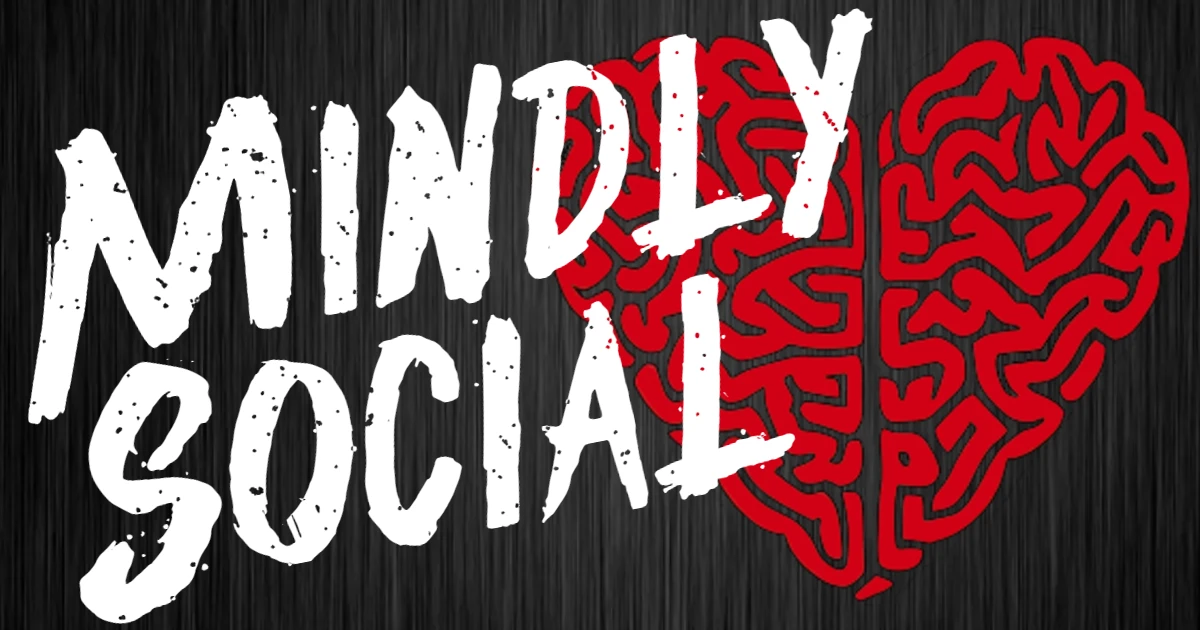Molecular Biology & Evolution<p>Leonardis et al. extend generative protein models to ancestral sequence reconstruction The approach outperforms standard methods and recovers a more diverse set of ancestral protein sequences.</p><p>🔗 <a href="https://doi.org/10.1093/molbev/msaf070" rel="nofollow noopener noreferrer" translate="no" target="_blank"><span class="invisible">https://</span><span class="">doi.org/10.1093/molbev/msaf070</span><span class="invisible"></span></a></p><p><a href="https://ecoevo.social/tags/molbio" class="mention hashtag" rel="nofollow noopener noreferrer" target="_blank">#<span>molbio</span></a> <a href="https://ecoevo.social/tags/evobio" class="mention hashtag" rel="nofollow noopener noreferrer" target="_blank">#<span>evobio</span></a> <a href="https://ecoevo.social/tags/LanguageEvolution" class="mention hashtag" rel="nofollow noopener noreferrer" target="_blank">#<span>LanguageEvolution</span></a></p>
Recent searches
No recent searches
Search options
Only available when logged in.
mindly.social is one of the many independent Mastodon servers you can use to participate in the fediverse.

Mindly.Social is an English speaking, friendly Mastodon instance created for people who want to use their brains and their hearts to make social networking more social. 🧠💖
Administered by:
Server stats:
1.1Kactive users
mindly.social: About · Status · Profiles directory · Privacy policy
Mastodon: About · Get the app · Keyboard shortcuts · View source code · v4.3.8
#LanguageEvolution
0 posts · 0 participants · 0 posts today
Molecular Biology & Evolution<p>New paper by Lewin & Eyre-Walker finds a strong negative correlation between generation time and yearly mutation rate. This highlights generation time as a key driver of molecular evolution across eukaryote clades.</p><p>🔗 <a href="https://doi.org/10.1093/molbev/msaf069" rel="nofollow noopener noreferrer" translate="no" target="_blank"><span class="invisible">https://</span><span class="">doi.org/10.1093/molbev/msaf069</span><span class="invisible"></span></a></p><p><a href="https://ecoevo.social/tags/NewPaperAlert" class="mention hashtag" rel="nofollow noopener noreferrer" target="_blank">#<span>NewPaperAlert</span></a> <a href="https://ecoevo.social/tags/LanguageEvolution" class="mention hashtag" rel="nofollow noopener noreferrer" target="_blank">#<span>LanguageEvolution</span></a></p>
michael<p>this book on <a href="https://mastodon.social/tags/ProtoIndoEuropean" class="mention hashtag" rel="nofollow noopener noreferrer" target="_blank">#<span>ProtoIndoEuropean</span></a> <a href="https://mastodon.social/tags/language" class="mention hashtag" rel="nofollow noopener noreferrer" target="_blank">#<span>language</span></a> looks promising: </p><p><a href="https://www.theguardian.com/books/2025/apr/10/proto-by-laura-spinney-review-how-indo-european-languages-went-global" rel="nofollow noopener noreferrer" translate="no" target="_blank"><span class="invisible">https://www.</span><span class="ellipsis">theguardian.com/books/2025/apr</span><span class="invisible">/10/proto-by-laura-spinney-review-how-indo-european-languages-went-global</span></a> <a href="https://mastodon.social/tags/newbooks" class="mention hashtag" rel="nofollow noopener noreferrer" target="_blank">#<span>newbooks</span></a> <a href="https://mastodon.social/tags/review" class="mention hashtag" rel="nofollow noopener noreferrer" target="_blank">#<span>review</span></a> <a href="https://mastodon.social/tags/LanguageEvolution" class="mention hashtag" rel="nofollow noopener noreferrer" target="_blank">#<span>LanguageEvolution</span></a></p>
Dianora (Diane Bruce)<p>The realisation that language change is real is really struck home when one looks up what the word "silly" used to mean.</p><p><a href="https://ottawa.place/tags/Language" class="mention hashtag" rel="nofollow noopener noreferrer" target="_blank">#<span>Language</span></a> <a href="https://ottawa.place/tags/LanguageChange" class="mention hashtag" rel="nofollow noopener noreferrer" target="_blank">#<span>LanguageChange</span></a> <a href="https://ottawa.place/tags/LanguageEvolution" class="mention hashtag" rel="nofollow noopener noreferrer" target="_blank">#<span>LanguageEvolution</span></a> <a href="https://ottawa.place/tags/Linguistics" class="mention hashtag" rel="nofollow noopener noreferrer" target="_blank">#<span>Linguistics</span></a></p>
nemo™ 🇺🇦<p>Is it cultural appropriation when drag slang & AAVE words enter the mainstream? 🤔 Babbel's article dives into the complex relationship between language, subcultures, and power dynamics. Explore the evolution & potential pitfalls of adopting slang from marginalized communities. 💬 <a href="https://mas.to/tags/CulturalAppropriation" class="mention hashtag" rel="nofollow noopener noreferrer" target="_blank">#<span>CulturalAppropriation</span></a> <a href="https://mas.to/tags/AAVE" class="mention hashtag" rel="nofollow noopener noreferrer" target="_blank">#<span>AAVE</span></a> <a href="https://mas.to/tags/DragSlang" class="mention hashtag" rel="nofollow noopener noreferrer" target="_blank">#<span>DragSlang</span></a> <a href="https://mas.to/tags/LanguageEvolution" class="mention hashtag" rel="nofollow noopener noreferrer" target="_blank">#<span>LanguageEvolution</span></a> <a href="https://mas.to/tags/culture" class="mention hashtag" rel="nofollow noopener noreferrer" target="_blank">#<span>culture</span></a> </p><p>🔗 <a href="https://www.babbel.com/en/magazine/cultural-appropriation-drag-slang-aave" rel="nofollow noopener noreferrer" translate="no" target="_blank"><span class="invisible">https://www.</span><span class="ellipsis">babbel.com/en/magazine/cultura</span><span class="invisible">l-appropriation-drag-slang-aave</span></a></p>
Stefan Hartmann<p>Out now & open access: In our new "Cambridge Element", <span class="h-card" translate="no"><a href="https://scholar.social/@symbolicstorage" class="u-url mention" rel="nofollow noopener noreferrer" target="_blank">@<span>symbolicstorage</span></a></span> and I explore the intersection of <a href="https://fediscience.org/tags/CognitiveLinguistics" class="mention hashtag" rel="nofollow noopener noreferrer" target="_blank">#<span>CognitiveLinguistics</span></a> and <a href="https://fediscience.org/tags/LanguageEvolution" class="mention hashtag" rel="nofollow noopener noreferrer" target="_blank">#<span>LanguageEvolution</span></a> research <a href="https://www.cambridge.org/core/elements/cognitive-linguistics-and-language-evolution/842A7917E9BC829C29A086CA41C6E9C6" rel="nofollow noopener noreferrer" translate="no" target="_blank"><span class="invisible">https://www.</span><span class="ellipsis">cambridge.org/core/elements/co</span><span class="invisible">gnitive-linguistics-and-language-evolution/842A7917E9BC829C29A086CA41C6E9C6</span></a></p>
michael<p>1-FEB-2024<br>The evolution of sign languages globally revealed through computational analyses</p><p><a href="https://www.eurekalert.org/news-releases/1032625" rel="nofollow noopener noreferrer" translate="no" target="_blank"><span class="invisible">https://www.</span><span class="ellipsis">eurekalert.org/news-releases/1</span><span class="invisible">032625</span></a> </p><p>It's always struck me as unfortunate that there isn't a universal sign language. </p><p><a href="https://mastodon.social/tags/science" class="mention hashtag" rel="nofollow noopener noreferrer" target="_blank">#<span>science</span></a> <a href="https://mastodon.social/tags/linguistics" class="mention hashtag" rel="nofollow noopener noreferrer" target="_blank">#<span>linguistics</span></a> <a href="https://mastodon.social/tags/languageEvolution" class="mention hashtag" rel="nofollow noopener noreferrer" target="_blank">#<span>languageEvolution</span></a> <a href="https://mastodon.social/tags/SignLanguage" class="mention hashtag" rel="nofollow noopener noreferrer" target="_blank">#<span>SignLanguage</span></a></p>
michael<p>27-Jul-2023<br>A unified theory of the lexicon and the mind: Researchers find common cognitive foundation for child language development and language evolution </p><p><a href="https://www.eurekalert.org/news-releases/996971" rel="nofollow noopener noreferrer" translate="no" target="_blank"><span class="invisible">https://www.</span><span class="ellipsis">eurekalert.org/news-releases/9</span><span class="invisible">96971</span></a> </p><p>this looks interesting and might be important. Will have to poke some clever people who could explain it to me. <br><a href="https://mastodon.social/tags/science" class="mention hashtag" rel="nofollow noopener noreferrer" target="_blank">#<span>science</span></a> <a href="https://mastodon.social/tags/language" class="mention hashtag" rel="nofollow noopener noreferrer" target="_blank">#<span>language</span></a> <a href="https://mastodon.social/tags/LanguageEvolution" class="mention hashtag" rel="nofollow noopener noreferrer" target="_blank">#<span>LanguageEvolution</span></a> <a href="https://mastodon.social/tags/LanguageDevelopment" class="mention hashtag" rel="nofollow noopener noreferrer" target="_blank">#<span>LanguageDevelopment</span></a></p>
Hari Tulsidas<p>Orangutans can control their vocalizations in a way that was thought to be unique to humans. A new study shows that orangutans can produce two different types of sounds at the same time, such as a whistle and a grunt. This ability is similar to how humans produce speech sounds, and it could shed light on the evolution of human language. </p><p><a href="https://masto.ai/tags/Orangutans" class="mention hashtag" rel="nofollow noopener noreferrer" target="_blank">#<span>Orangutans</span></a> <a href="https://masto.ai/tags/Speech" class="mention hashtag" rel="nofollow noopener noreferrer" target="_blank">#<span>Speech</span></a> <a href="https://masto.ai/tags/LanguageEvolution" class="mention hashtag" rel="nofollow noopener noreferrer" target="_blank">#<span>LanguageEvolution</span></a> <a href="https://neurosciencenews.com/orangutans-speech-evolution-dual-23538/?utm_source=flipboard&utm_content=HariTulsidas%2Fmagazine%2FMind+and+Matter" rel="nofollow noopener noreferrer" target="_blank"><span class="invisible">https://</span><span class="ellipsis">neurosciencenews.com/orangutan</span><span class="invisible">s-speech-evolution-dual-23538/?utm_source=flipboard&utm_content=HariTulsidas%2Fmagazine%2FMind+and+Matter</span></a></p>
Jonas Nölle<p>Excited to share: after my current postdoc at the FACESYNTAX project finishes, I'll join <span class="h-card"><a href="https://sciences.social/@ozyurek_a" class="u-url mention" rel="nofollow noopener noreferrer" target="_blank">@<span>ozyurek_a</span></a></span> at the Multimodal Language Department <span class="h-card"><a href="https://mstdn.science/@mpi_nl" class="u-url mention" rel="nofollow noopener noreferrer" target="_blank">@<span>mpi_nl</span></a></span> next year! <br>We'll use <a href="https://fediscience.org/tags/VR" class="mention hashtag" rel="nofollow noopener noreferrer" target="_blank">#<span>VR</span></a> and mocap to probe multimodal communication and language evolution in unprecedented ways. Looking forward to pushing boundaries with wild, insightful experiments. 🕹️😎<br><a href="https://fediscience.org/tags/Multimodality" class="mention hashtag" rel="nofollow noopener noreferrer" target="_blank">#<span>Multimodality</span></a> <a href="https://fediscience.org/tags/VR" class="mention hashtag" rel="nofollow noopener noreferrer" target="_blank">#<span>VR</span></a> <a href="https://fediscience.org/tags/Interaction" class="mention hashtag" rel="nofollow noopener noreferrer" target="_blank">#<span>Interaction</span></a> <a href="https://fediscience.org/tags/LanguageEvolution" class="mention hashtag" rel="nofollow noopener noreferrer" target="_blank">#<span>LanguageEvolution</span></a></p>
Michael Pleyer<p>This came out last month but I thought I'd take the opportunity to boost it here. <br>Stefan Hartmann, Ryan Lepic and I published a paper on Compositionality in Different Modalities: A View from Usage-Based Linguistics in the International Journal of Primatology<br><a href="https://link.springer.com/article/10.1007/s10764-022-00330-x" rel="nofollow noopener noreferrer" translate="no" target="_blank"><span class="invisible">https://</span><span class="ellipsis">link.springer.com/article/10.1</span><span class="invisible">007/s10764-022-00330-x</span></a><br>We discuss concepts of <a href="https://scholar.social/tags/compositionality" class="mention hashtag" rel="nofollow noopener noreferrer" target="_blank">#<span>compositionality</span></a> in spoken and signed languages and what their implications are for <a href="https://scholar.social/tags/LanguageEvolution" class="mention hashtag" rel="nofollow noopener noreferrer" target="_blank">#<span>LanguageEvolution</span></a> and analyses of compositionality in <a href="https://scholar.social/tags/AnimalCommunication" class="mention hashtag" rel="nofollow noopener noreferrer" target="_blank">#<span>AnimalCommunication</span></a> <a href="https://scholar.social/tags/OpenAccess" class="mention hashtag" rel="nofollow noopener noreferrer" target="_blank">#<span>OpenAccess</span></a></p>
ExploreLive feeds
Mastodon is the best way to keep up with what's happening.
Follow anyone across the fediverse and see it all in chronological order. No algorithms, ads, or clickbait in sight.
Create accountLoginDrag & drop to upload
